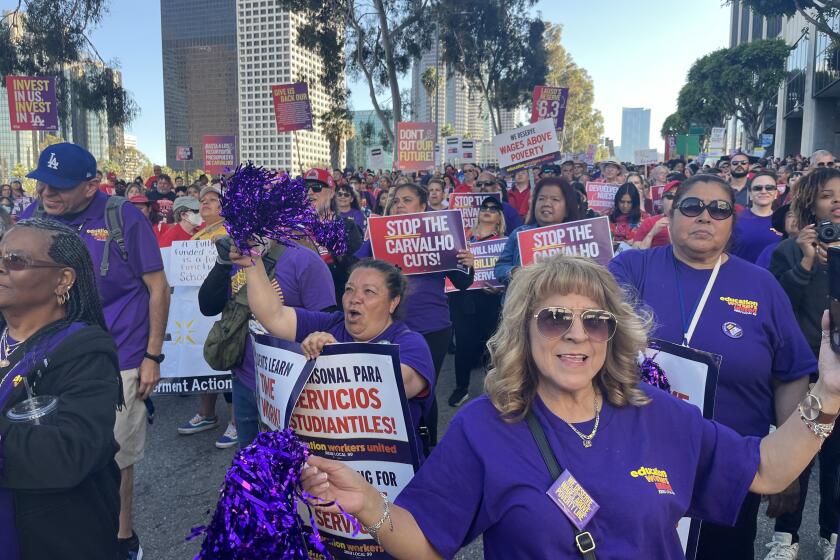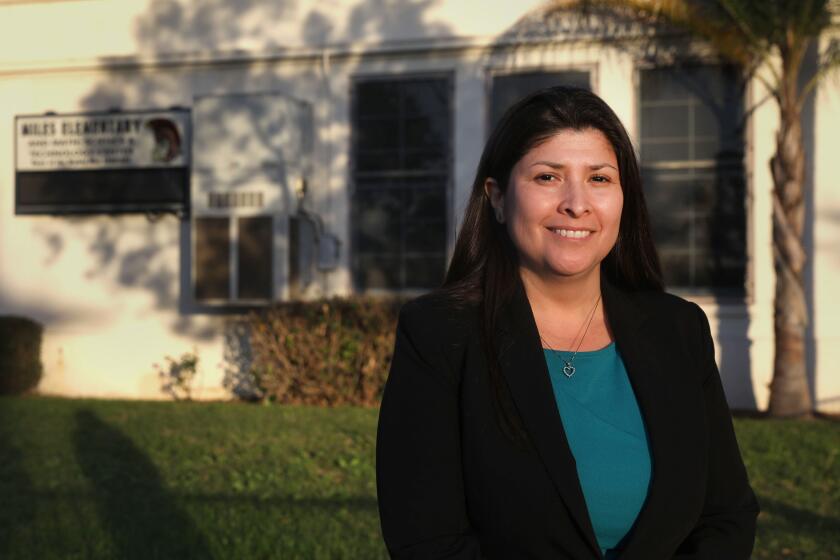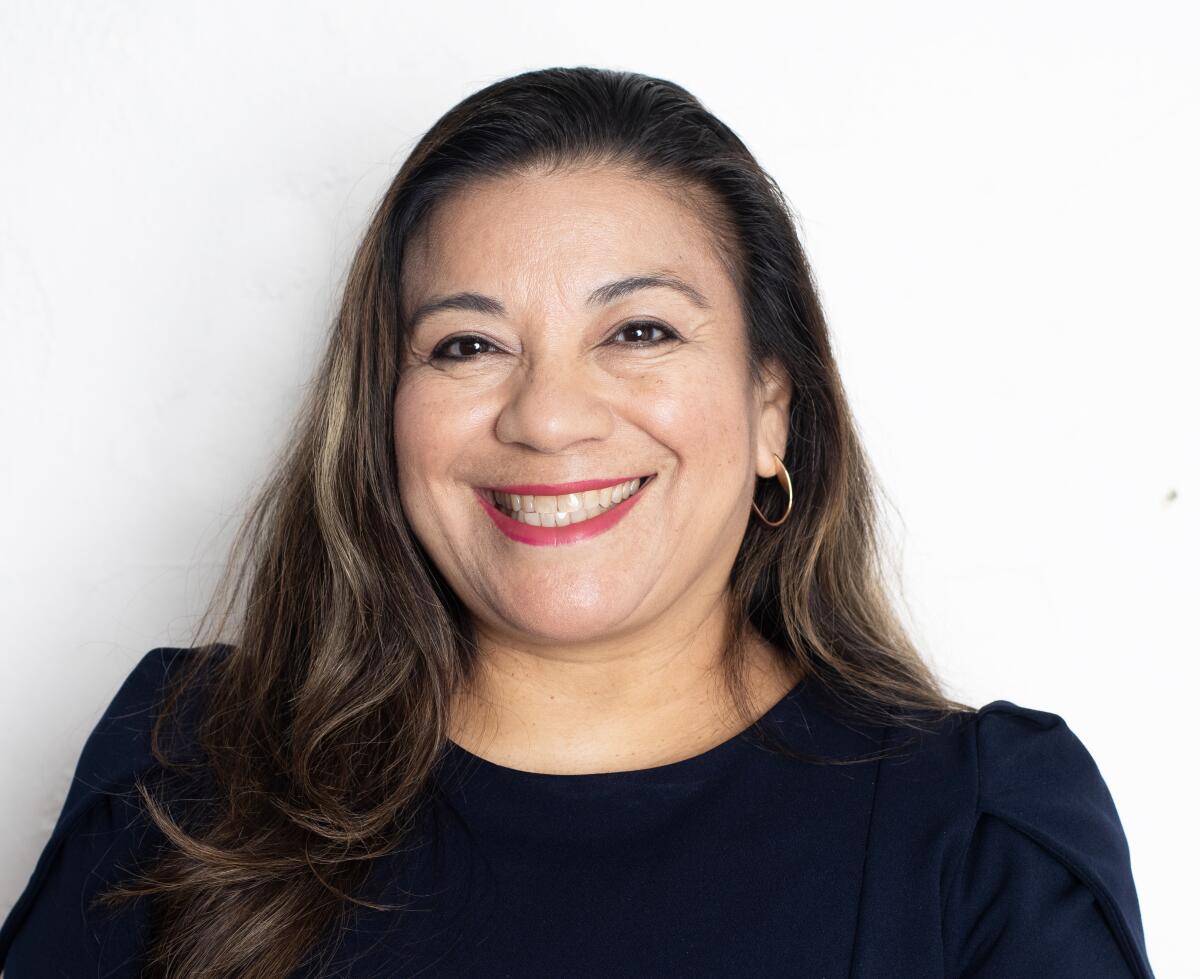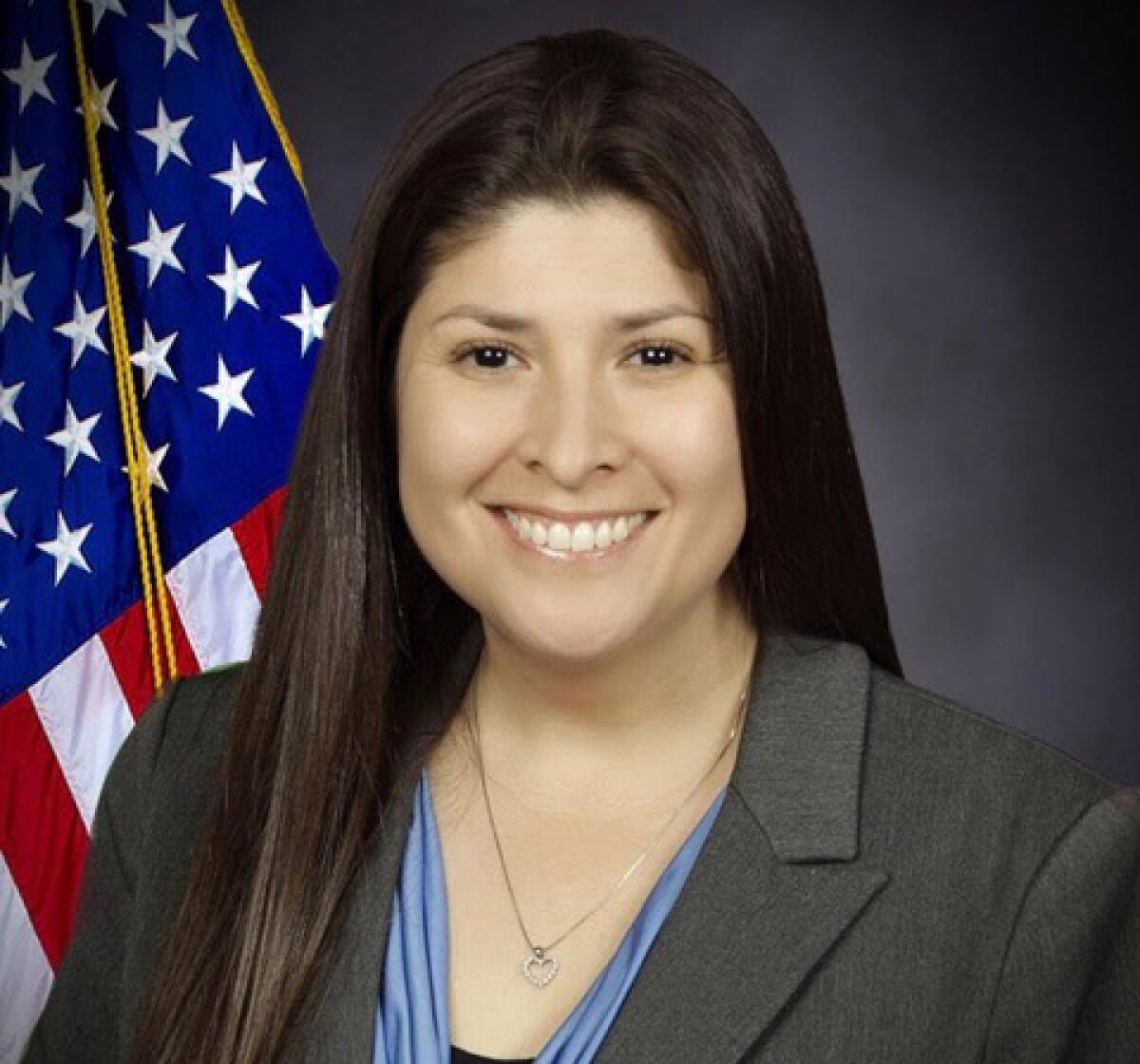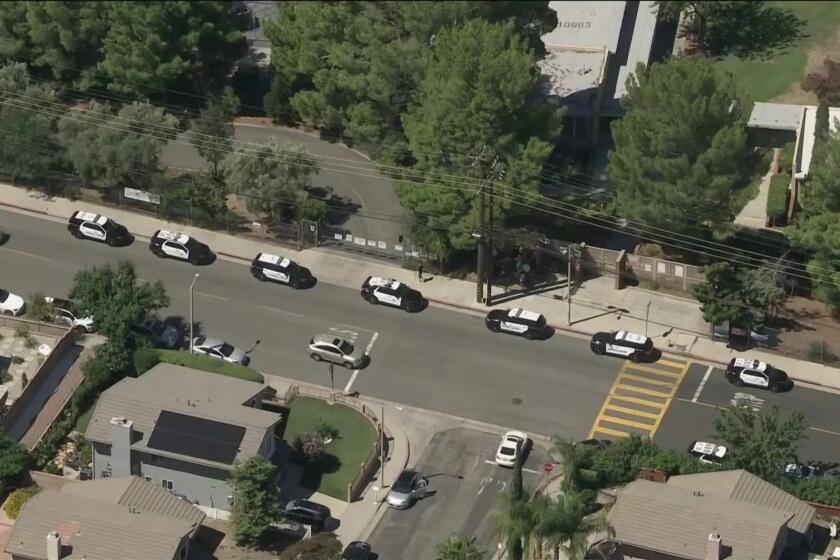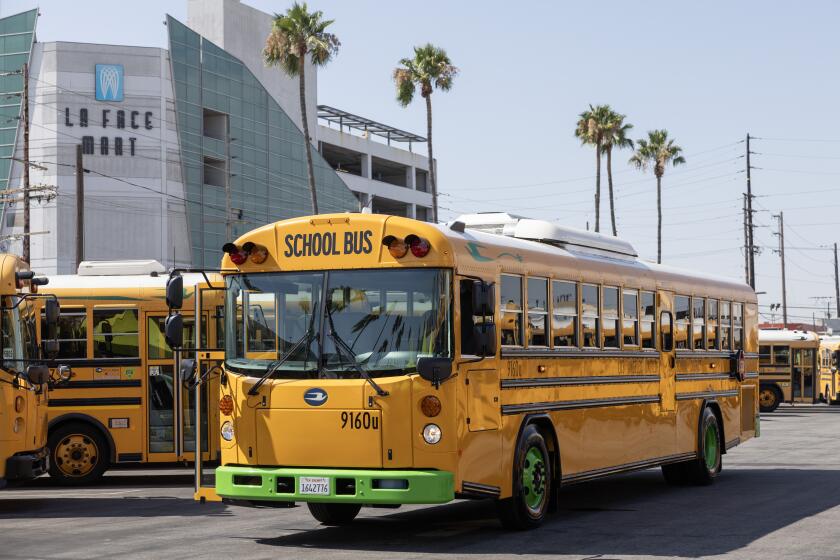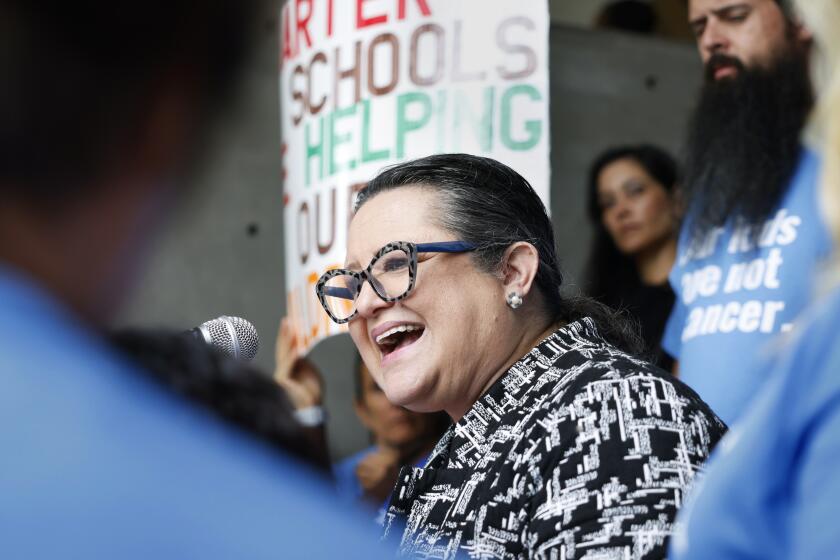The District 5 race is a contest between candidates with valuable but different professional backgrounds in education. The district’s two most powerful unions are also facing off in the race by supporting opposing sides.
Local 99 of Service Employees International Union is backing Ortiz. Local 99 members include custodians, cafeteria workers, bus drivers, teacher aides and security aides. United Teachers Los Angeles is backing Griego. UTLA represents teachers, psychologists, librarians, nurses and counselors.
Both unions spent comparable amounts — approaching $1 million apiece — in the primary, in which Griego finished in the top position.
Through Oct. 2, Local 99 has outspent UTLA, having poured in more than $590,000 compared to about $391,000. In the primary, however, the teachers union closed a funding gap with later-in-the-game spending.
A defining question for Griego is how much, if any, distance there is between her positions and those of UTLA, which exerts more influence over school district policies than Local 99. Griego has long been a UTLA leader, including serving on the union’s board of directors.
UTLA’s senior leadership has sought to eliminate funding for school police, wants strict oversight over charter schools and to limit their growth, is pushing for an end to much of the district’s standardized testing and has been critical of Supt. Alberto Carvalho. If Griego wins, UTLA potentially would have its strongest ally on the board.
Local 99 wanted its own candidate — one not so closely aligned with the teachers union — and chose Ortiz, even though, as a longtime school counselor, she was an active member of the teachers union.
Local 99’s priorities lean toward bread-and-butter issues, such as protecting and enhancing the jobs, salaries and benefits of the employees it represents. The union — joined by many parents and also by UTLA — has criticized Carvalho for allegedly not upholding contract commitments, and instead pressuring schools to cut jobs and employees’ hours and benefits.
In response to the outcry, district officials have set up a fund from which schools can restore positions, while also asserting they have abided by the terms of the contract. The back-and-forth budget decisions have created difficult situations at schools for employees seeking job stability — and for administrators managing hiring and work hours.
But the bottom line is that Carvalho could face new pressures from the new board member regardless of who wins.
Charter school advocates who have funded big-money independent campaigns have largely sat out this race, but based on individual donations, charter backers appear to favor Ortiz.
The L.A. Unified school police unions also endorse Ortiz. They are concerned that a UTLA-backed candidate would support the teachers union’s call to eliminate the school Police Department.
Ortiz also has served as Huntington Park’s mayor — the job rotates among council members. That city is divided sharply into factions. Issues raised by critics of Ortiz’s faction include a dispute over bus services that came to light in 2017, in which contracts were awarded to a company with political connections that charged more. Ortiz denied any wrongdoing by herself or the city.
Ortiz’s close political allies include Efren Martinez, a city commissioner who is running for the state Assembly.
Ortiz and Martinez were named this year as defendants in a civil lawsuit alleging that they were financially liable for the sexual abuse of a high school student by a worker in a 2021 campaign they were managing. The high school student was working on that campaign.
Just after that filing, L.A. Unified briefly removed Ortiz from her job as a counseling administrator before reinstating her several weeks later. The school system won’t comment on the purpose of the investigation or on whether Ortiz was subject to discipline. But she did ultimately return to her job. Ortiz also declined to comment on the matter.
Meanwhile, an L.A. Superior Court judge removed Ortiz and Martinez from the lawsuit in April — on the grounds they are not liable based on the evidence presented — but allowed the case to remain active. The victim’s attorney has included Ortiz and Martinez once more in an amended complaint. The next hearing in the litigation is in October.
Ortiz predicted that she would be successful again in getting removed from the case and characterized the lawsuit as politically motivated and frivolous.
“As a full-time educator and counselor, I haven’t let myself get distracted by the politics running for office tries to toss you,” Ortiz said. “I’d much prefer to talk about issues that moms and dads bring up when I knock on their doors in Silver Lake, Eagle Rock and southeast cities.”
The responses below to specific LAUSD issues were compiled through a questionnaire The Times sent to candidates, follow-up emails and conversations with the candidates. The content was supplemented with material from campaign websites and from statements at public campaign forums. Candidates also had the opportunity to provide updated input after the primary.
The answers are summarized or lightly edited for length or clarity.



